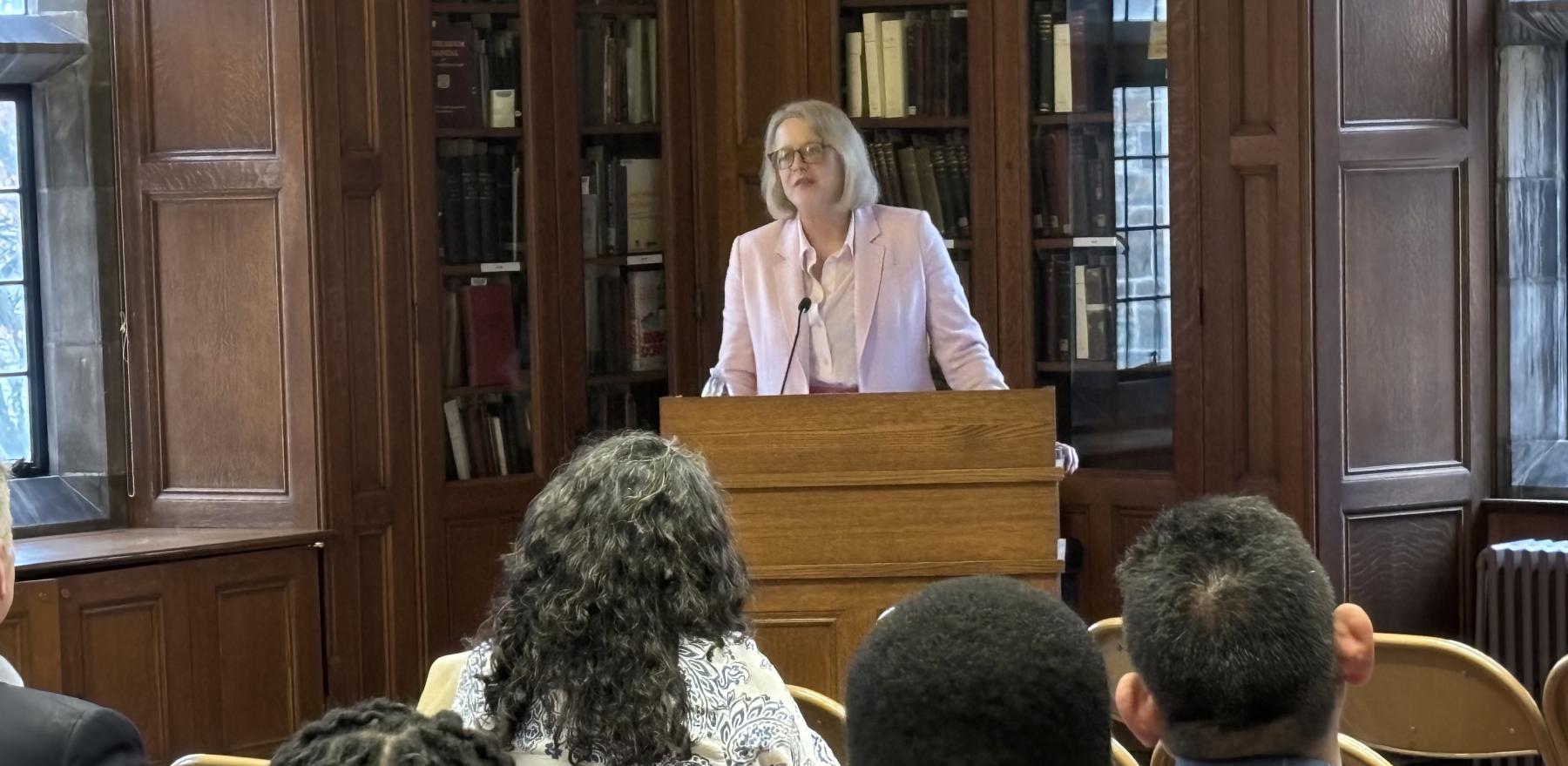Karin Fischer, a leading reporter on international education, spoke at Lehigh University this week, underscoring the enduring importance of global learning initiatives despite growing skepticism from political and social forces.
One of the nation’s leading reporters on international education spoke at Lehigh University this week, emphasizing the importance of global education initiatives while addressing the challenges posed by increasing social and political skepticism.
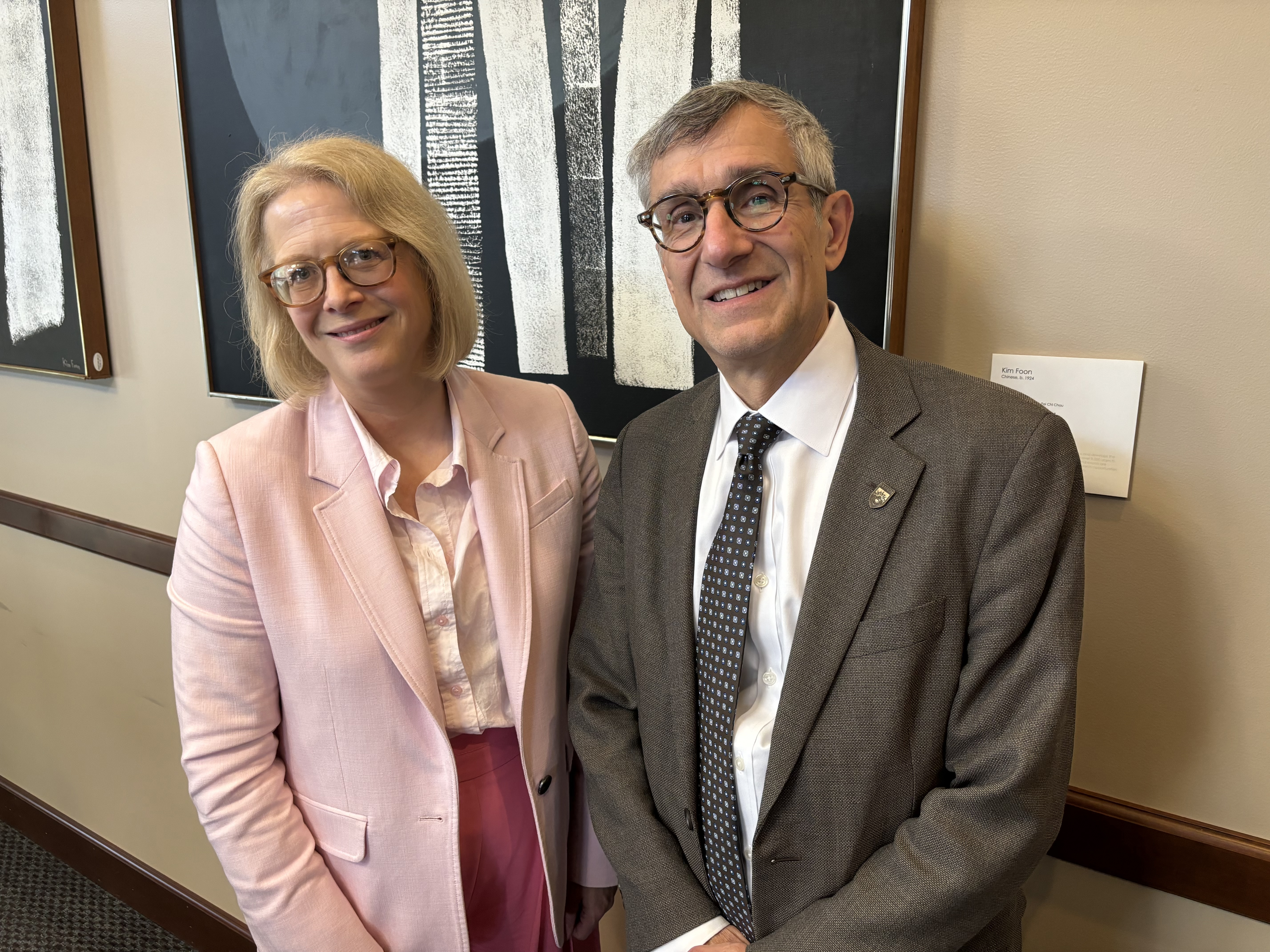
Karin Fischer, a senior writer with The Chronicle of Higher Education, delivered keynote remarks on Nov. 19 as part of International Education Week (IEW), a week-long celebration of global education and exchange at Lehigh University this month.
A global rise in populism and nationalism is reshaping higher education, with governments in various nations seeking to control academic discourse and institutions, Fischer said. Colleges and universities, among the most international institutions in the country, are navigating a complex landscape of skepticism toward both higher education and global initiatives.
“I think for international education, it's kind of like a double whammy, right?” Fischer said. “You've got skepticism about higher education, and skepticism about anything that has the word ‘global’ attached. So you’re right in the bull's-eye.”
However, Fischer said international education is still acknowledged as a vital means to foster understanding and collaboration across borders, even amidst political and cultural tensions. She believes skepticism toward globalization and internationalization can encourage higher education institutions to critically evaluate their missions and priorities, leading to more intentional and meaningful international engagement.
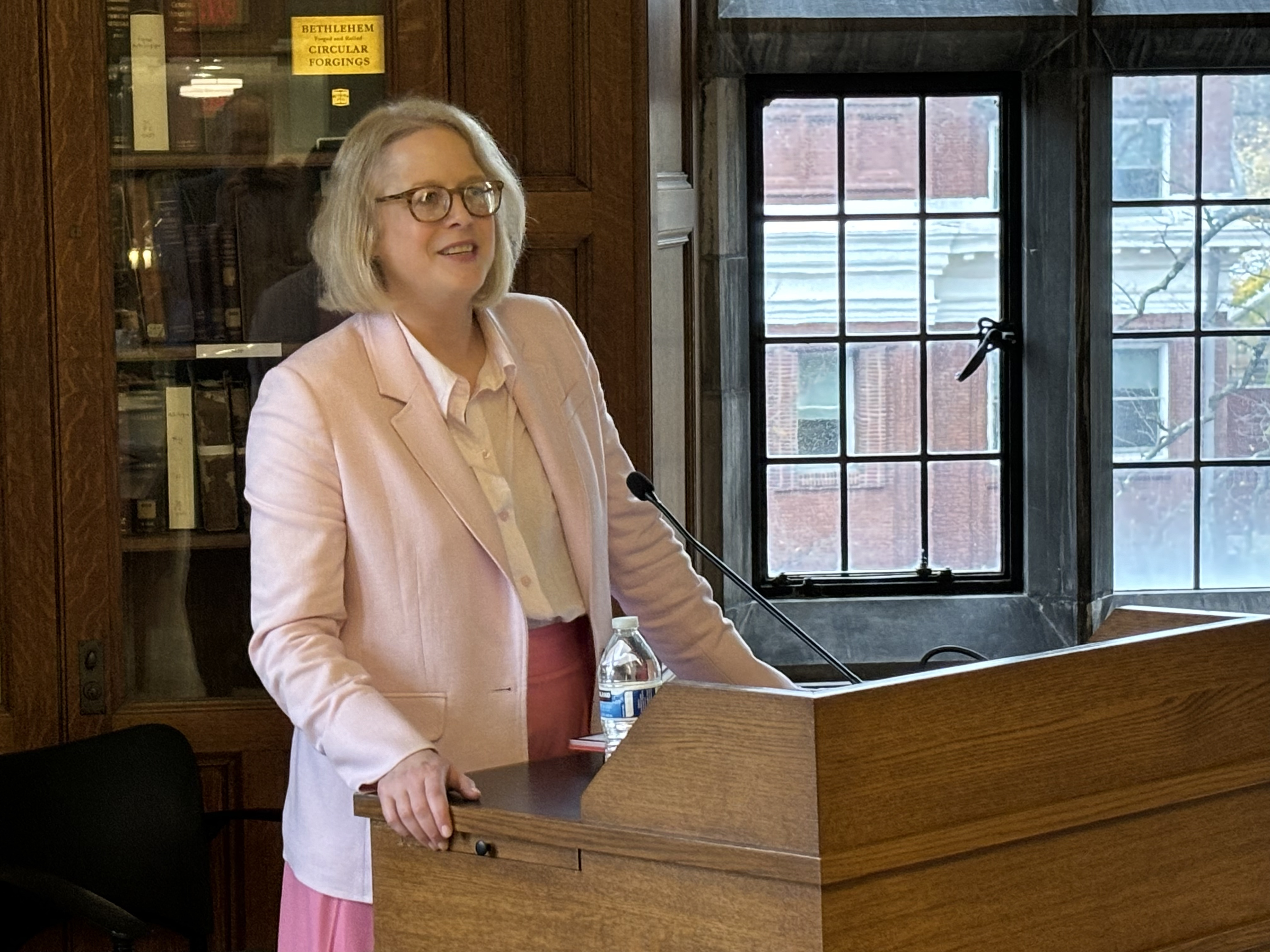
“Even with the polarization we're seeing globally, international education continues to be one of the most powerful tools for connecting people across divides,” Fischer said. “It allows students and educators to see beyond headlines and stereotypes, fostering genuine understanding and collaboration that transcends political and cultural barriers.”
Fischer has been writing for The Chronicle of Higher Education for about 20 years. She covers international education, including American colleges’ activities overseas, the globalization of the college experience, study abroad, and more. She also publishes a popular weekly newsletter on global education called Latitudes.
“It’s a great honor to welcome Karin Fischer to Lehigh University, and very timely as we celebrate International Education Week,” said Cheryl Matherly, Vice President and Vice Provost for International Affairs. “Karin is widely respected for her prescient reporting about international issues impacting US higher education.”
During her keynote remarks, Fischer said globalization is no longer seen as unequivocally positive in the current political climate. Historically, international education has been seen as a tool for global understanding and collaboration, but face more scrutiny and suspicion today that parallels declining trust in other American institutions.
Factors include high tuition costs, student debt, the value of degrees, concerns about return on investment, and skepticism about expertise, Fischer said. Messaging about higher education, such as "college for all," is sometimes perceived as exclusionary rather than inclusive.
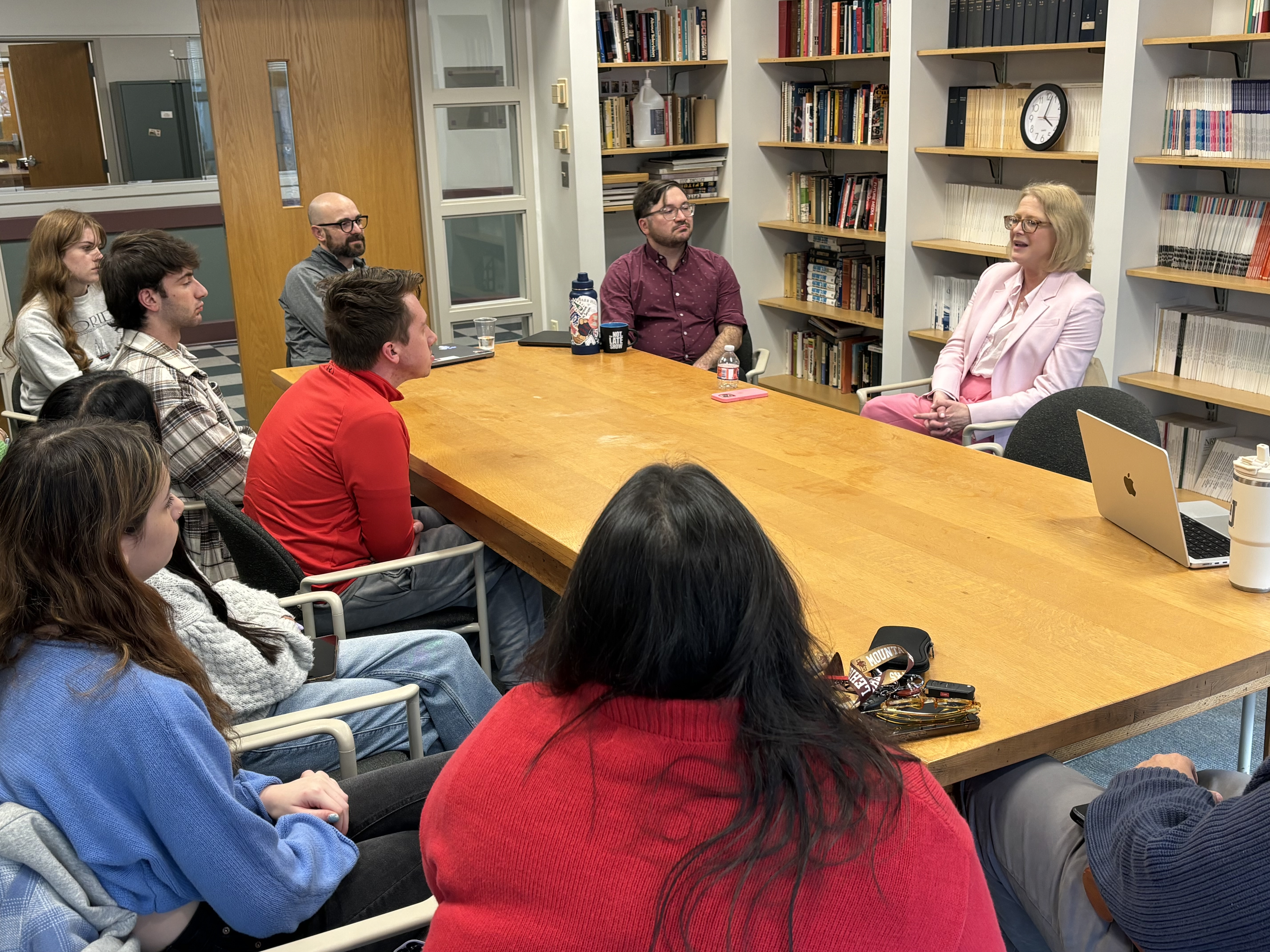
Fischer said skepticism about higher education may influence international students’ perceptions and decisions to study in the United States, and that the potential return of policies from the Donald Trump administration, such as travel bans and visa restrictions, could create challenges for international education.
However, she also said that surveys suggest international students prioritize factors other than political leadership when choosing whether to study in the United States. She also noted that political elements have always been part of international education, as seen with programs like Fulbright and U.S.-China educational exchanges.
Fischer said discussions around policies and restrictions are prompting renewed conversations about preserving the independence of higher education and its role in fostering diverse perspectives.
“I think there's going to be some reckoning, and I think colleges are really going to need to be thinking about the deep and growing educational divides in this country,” Fischer said.
Despite nationalistic trends, the acknowledgment of shared challenges across countries creates opportunities for international solidarity among educators and policymakers, she said. There remains an ongoing effort to emphasize the value of international education in fostering cross-cultural understanding and addressing global challenges, which Fischer said remains a core mission for many institutions.
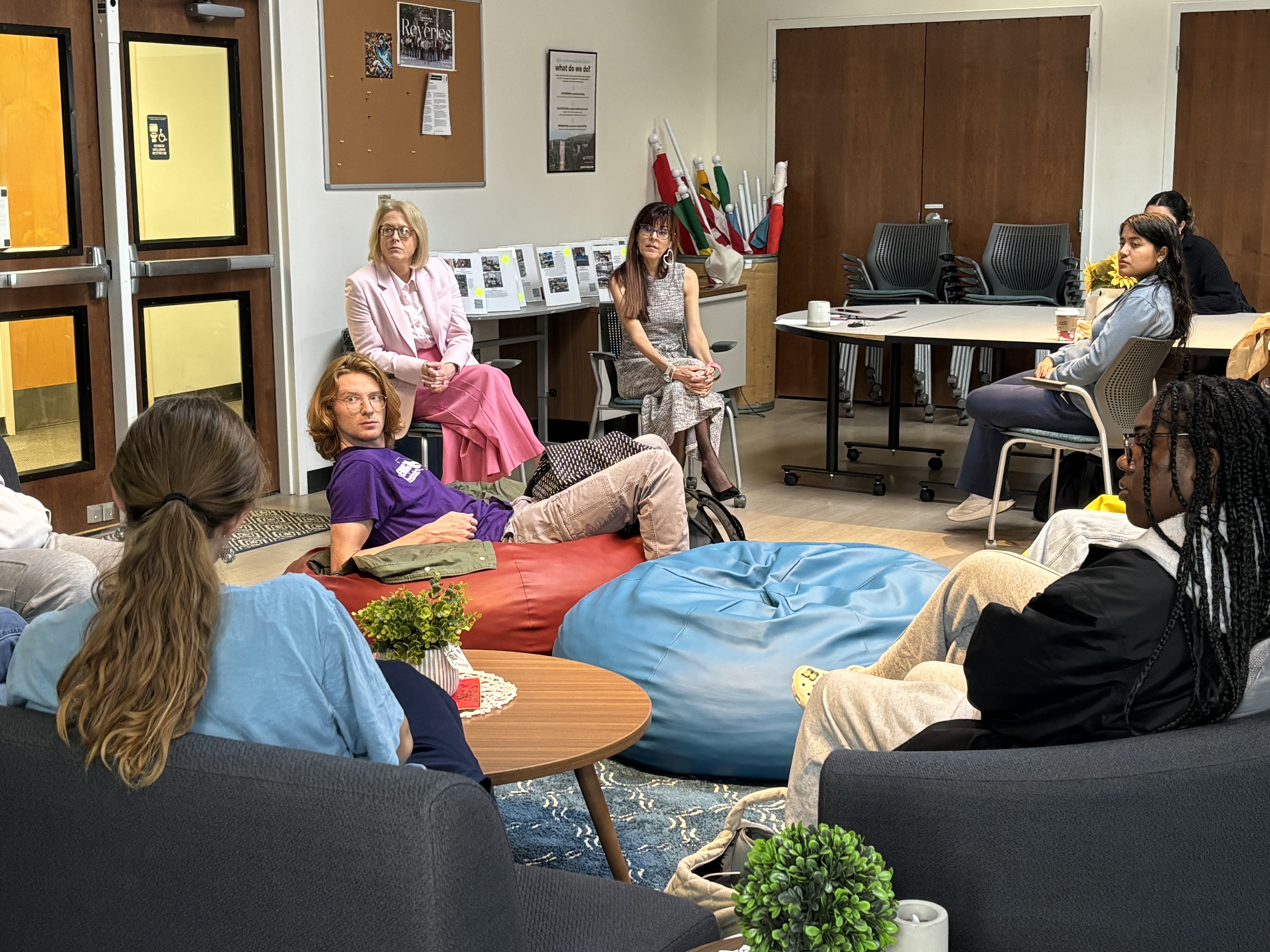
Fischer spent the day at Lehigh University prior to her keynote remarks. She met with OIA officials to discuss the various international education programs available at Lehigh, including its Office of International Affairs (OISS), study abroad, fellowship advising, the International Center for Academic and Professional English (ICAPE).
She attended a course with the Global Citizenship Practitioner-Leaders in Residence. She had an interactive and engaging discussion with students in the program, which is a small group of sophomores who want to think deeply about global issues, how we engage with diverse others, and how we create and sustain change in the world.
Fischer also me with faculty and students from Lehigh’s journalism department, was interviewed by The Brown and White student newspaper, and met with Lehigh University President Joseph J. Helble '82.
